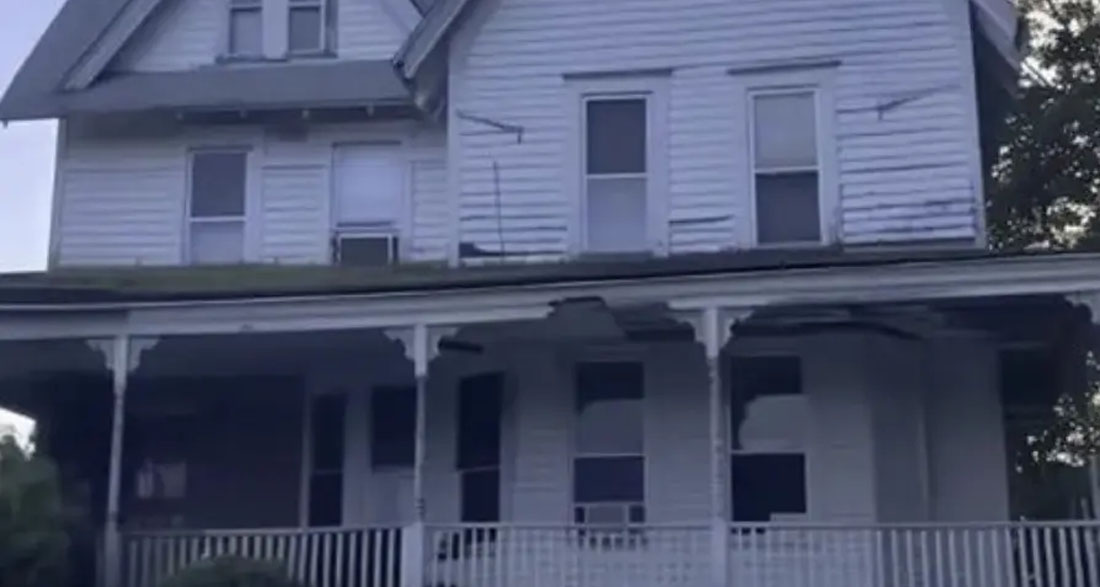When my grandfather passed away and left me his house, a wave of emotions washed over me. He had always been a big part of my life, guiding me with his wisdom and stories. Taking care of his house after his death felt overwhelming—it was old, falling apart, and I wasn’t sure I could handle it.
The house, once beautiful, had aged poorly. The paint had faded, the roof was sagging, and it seemed like the whole structure was tired—just like me. My life in the city was already hectic, and the thought of adding the responsibility of this old house felt like too much. So, I made the difficult decision to sell it.
I found a buyer, a man named Ben. He seemed eager and excited about the house, seeing potential where I only saw problems. He wanted to fix it up, and we quickly made the deal. After shaking hands, I thought I had left the house and all the memories tied to it behind me.
But just a week after the sale, I received a letter in the mail. It was written in my grandfather’s handwriting. The letter was old—he must have written it years before, instructing it to be sent after his passing. My heart raced as I opened it. His message was simple, but it filled me with unease: he told me to check the basement, a place I had never fully explored.
I immediately called Ben and asked if I could come back to the house. He was surprised but agreed. When I got there, the house already looked different. Ben had cleaned up the yard and started painting. He was clearly making progress. After a quick chat, I went straight to the basement.
The basement was dark and dusty, full of old furniture, covered in cobwebs. I started looking around, unsure of what I was even searching for. Ben stood nearby, watching me with curiosity. Just when I was about to give up, my hand brushed against a loose brick in the wall. Behind it was a small box filled with old letters and a key.
I had no idea what the key was for. I left the house, my mind full of questions, and that night I couldn’t stop thinking about it.
The next morning, I made a decision. I went back to the house and knocked on the door. Ben answered, surprised to see me again.
“I’ve been thinking,” I said. “I want to buy the house back.”
Ben looked at me, confused. “But you just sold it! You said it was too much to handle.”
“I know,” I admitted, “but this house is part of my family. It’s more than just a building. I can’t let it go.”
Ben didn’t give in easily. He had already started his renovations and saw the house as a project with potential. We ended up in a tough negotiation, and I had to pay a lot more than I had sold it for. It wasn’t easy, but I knew I had to do it.
Once the house was mine again, I went back to the basement, more determined than ever. I moved an old wardrobe in the corner and found a hidden door. The key from the box fit perfectly. Behind the door was a small room with a chest in the middle. I opened it, my heart pounding, expecting to find something valuable.
Inside, I found another letter from my grandfather and an old poker chip. The letter read: “I knew you’d sell the house, you fool! I taught you better than that. I hope you’ve learned your lesson. P.S. The poker chip is worthless, but keep it as a lucky charm.”
I couldn’t help but laugh. My grandfather had always had a unique way of teaching lessons. I realized that the house wasn’t just about bricks and wood—it was about my family, my history, and the lessons my grandfather had left behind.
From that day on, I promised to keep the house in the family. It wasn’t just a place to live—it was a reminder of my grandfather’s legacy. Over the next few months, I worked to restore it, turning it into a warm, welcoming place for family and friends, just as my grandfather would have wanted. The house, once a burden, had become a symbol of love and connection.
What do you think? Share your thoughts in the comments!

